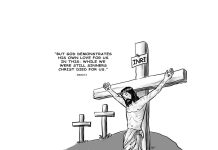[av_one_full first min_height=” vertical_alignment=” space=” custom_margin=” margin=’0px’ padding=’0px’ border=” border_color=” radius=’0px’ background_color=” src=” background_position=’top left’ background_repeat=’no-repeat’ animation=”]
[av_heading heading=’ABOVE THE LAW ‘ tag=’h3′ style=’blockquote modern-quote’ size=” subheading_active=’subheading_below’ subheading_size=’15’ padding=’10’ color=” custom_font=”]
BY AYIN DREAM D. APLASCA
[/av_heading]
[av_textblock size=” font_color=” color=”]
The bad news
WHILE waiting for my turn to grab a cup of coffee I activated my mobile data and started downloading President Rodrigo Duterte’s State of the Nation Address (SONA). Though I prefer the hardcopy I tried to read the one I downloaded for the sake of escaping boredom and annoyance from waiting for my turn.
Surprisingly, I immediately came across one of the key issues of his speech – the tax reform agenda that includes “sugar sweetened beverages” (SSBs). I sighed. Why? Let me share my ideas and views.
According to House Bill 292, these SSBs include sweetened and non-alcoholic beverages in liquid, solid or concentrated forms that are pre-packaged and pre-sealed by manufacturers like sachets of 3-in-1 coffee and flavored juice drink. These beverages also use any form of sweetener – may it be caloric like refined sugar, high-fructose corn syrup, etc. and/or low- to non-caloric. Also considered as SSBs are carbonated drinks, flavored water, energy drinks, sports drink, other powdered drinks, cereal and grain beverages, and all other non-alcoholic beverages that contain sugar.
Why should I or we care?
First, for the love of caffeine and sugar, consumers who spent more of these SSBs will pay from two percent to 200 percent price hike. Besides the consumers, retailers like sari-sari stores will be affected. According to the Philippine Association of Store and Carinderia Owners (PASCO), 80 percent of the consumers of these products are low-income earners. They are earning only minimum wage, are exempted from tax under the package, but their pay falls short of the real living wage. While the lawmakers recognize the health benefits of the proposed SSBs tax, this could hurt the poor and sugar industries.
Second, if centering alone on its aim to promote healthier living, I think the SSBs tax is worth taking a second guise at. It is a fact that eating a huge quantity of sugar can lead to weight gain and obesity, which in turn increases the risk of health conditions like diabetes and heart disease. However, despite the reality that Filipinos consume less SSBs in the last 15 years, obesity and diabetes remain prevalent. One report says it only shows that maybe other food groups are causing said diseases.
Lastly, I am not anti-tax reform. However, this SSBs tax is against the purpose of the government to come up with a simple, just and broad-based tax system in the Philippines. Solving a problem with another problem won’t do.
Bad news. That 3-in-1 coffee we now take for breakfast will be way more expensive next year. Someone said: Tax something else, but not food and drinks, for people’s sake.
(Atty. Ayin Dream D. Aplasca practices her profession in Iloilo City. She may be reached thru ayindream.aplasca@gmail.com/PN)
[/av_textblock]
[/av_one_full]







